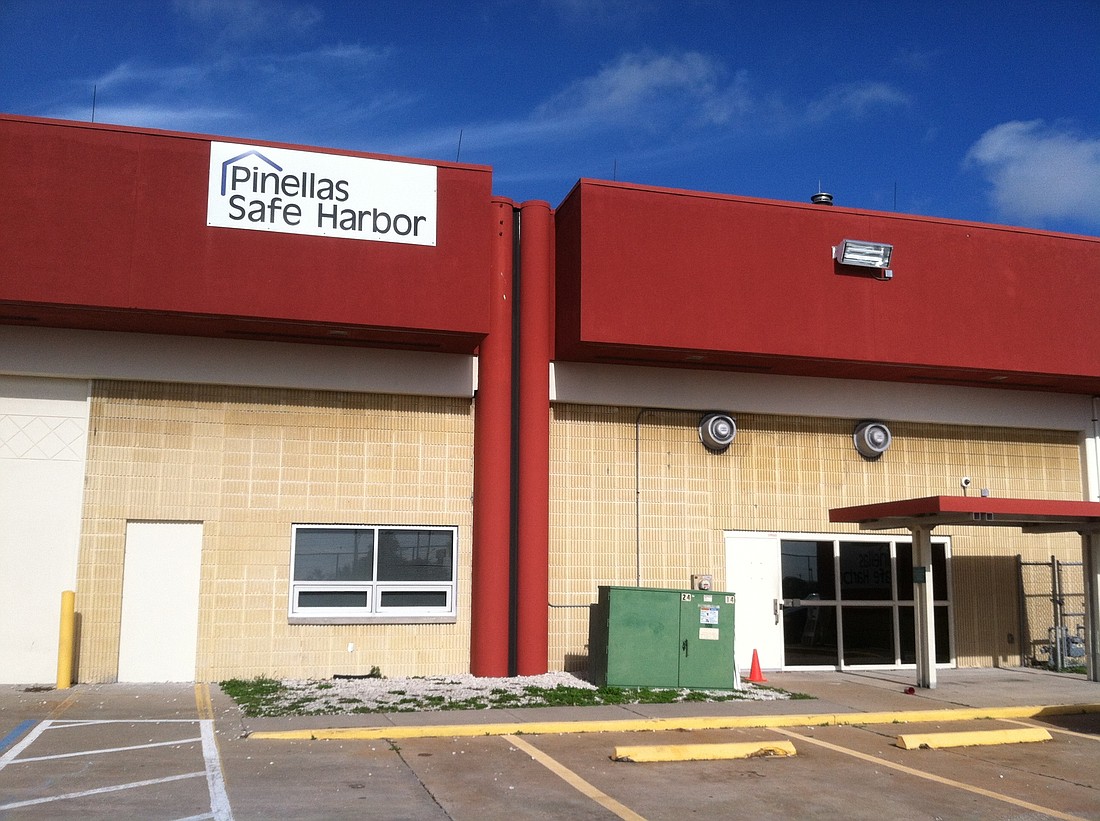- April 25, 2024
-
-
Loading

Loading

Pinellas County Sheriff Robert Gaultieri and former Pinellas County Commissioner Susan Latvala addressed Sarasota County Commissioners at the meeting on Oct. 13 to talk about running a come-as-you-are shelter for a homeless population.
Pinellas Safe Harbor (PSH), a shelter run by the Pinellas County Sheriff’s Department since 2011, operates with minimal contributions from Pinellas’ 24 cities. Some of which have never contributed, according to Gaultieri.
Before that, all of those cities were using the criminal justice system to address their homeless problem, he said, calling that method a “complete revolving door that accomplishes nothing.”
Moreover, Gaultieri said, most individuals in his jails were being arrested for petty issues like ordinance violations, for sleeping outside, for example.
The facility has an average daily population of 400 people, many of whom have substance abuse and mental health problems, who rarely benefit from transitional housing programs and who would otherwise be in jails, said Gaultieri.
There are social services for people in Pinellas County, he said, but many of those who use PSH rarely qualify for those services because of their requirements.
Though some homeless transition to housing, Gaultieri said, there is a significant contingent that will not, and as a result won’t benefit from housing first solutions, which he called “the flavor of the day.”
It’s a good model, he said, but for the small population that he believes will remain permanently homeless, it doesn’t help. Sarasota County Commissioner Paul Caragiulo suggested a “this or that” mentality about homeless solutions was problematic, calling a “come as you are” shelter “one piece of a very large puzzle,” and saying homelessness is an ongoing, management issue.
The are no qualifying criteria for those who want to sleep at PSH or use the services of their case management workers, who help get them access to drug treatment or disease prevention programs. The shelter is voluntary, he said, but officers have some ability to convince homeless to come to the shelter if they might otherwise face ordinance violations. Ultimately, though, people can come and go as they please.
PSH’s budget is $2.2 million annually, $1.7 of which is paid for by the Sheriff’s Department. Some additional contributions come from social service providers, and cities throughout Pinellas contribute approximately $250,000 each year.
“It isn’t carrying the day,” Gaultieri said, adding that some mayors suggested that because the solution ought to be the Pinellas county jails, the price should be paid by the Sheriff’s Department.
Gaultieri said his department spends $126 per day to house the homeless in a jail, but at PSH it costs $13.
He added that, without the shelter, Pinellas would have had to open a new jail at a cost of $4 million annually, almost three times the cost to the Sheriff’s Department of the shelter.
Gaultieri said he eventually gave up on getting more money from municipalities and decided to focus instead on doing what he could with the budget at hand.
Some cities have never contributed, he said. Largo, where PSH is located, has not contributed.
Sarasota County Commissioner Paul Caraguilo asked if law enforcement calls have increased in areas around the shelter, and was assured that calls about serious crimes like burglary did not increase.
In response to Sarasota County Commissioner Christine Robinson’s question about multiple, decentralized shelters, Gaultieri recommended that the shelter be centrally located or it would be ineffective. Patrons need access to other services, he said, including transportation.
Former Pinellas County Commissioner, who served from 2000 to 2014, said the issue is a humanitarian one, as well. She described seeing animals in county shelters being treated more humanely than the county’s homeless.
“They don’t vote for you or demand services at County Commission meetings,” Latvala said, “but they’re still your responsibility.